
This article has been roiling around my brain for a few years, and it’s time to write it, as several people have recently asked me some questions about it. It’s the story of how I became an atheist – something I never could have imagined when I was younger. Sit back with a good cup of coffee, this is going to take a bit. Bear in mind, this is an attempt to cover the last 44 years of my life in 1 blog post, so it’s a coarse summary, not a detailed autobiography. I’m going to use some pithy memes and quotes to make quick summaries of whole discussions and thought processes that took years to develop, but don’t make the mistake of believing that a quick meme and quote is all it takes to change my mind. Check the Bibliography at the end of the article for a partial list of the books that I’ve read that influenced me. You can also read about why I came out as an atheist, and why I think reading many books is key to understanding why the Bible isn’t a good one.
Phase 1: Faith: Born, Baptised, Raised, Confirmed Christian.
I was born and raised in the Roman Catholic Church; I attended CCD, aka the “Confraternity of Christian Doctrine” aka Sunday School from 1st grade through senior year in high school, and attended Mass pretty much every Sunday unless seriously ill, traveling, or weather prevented it. Faith and God were an integral part of my daily life; in fact, I can’t remember any time in my life when I didn’t believe in God before my early 30’s. I was baptised as a baby, went through the Confirmation process that brings you to adulthood in the Church, all of that stuff, and I believed. I had questions and doubts about some details, but I believed with all my heart, soul, and mind in God, Jesus, and the Holy Spirit.
In college, I continued to be very active in faith. I attended the Newman Center Catholic Church/Student Center during undergrad (except while I was in Germany) and I also was very active in an on-campus Christian group called Inter-Varsity Campus Fellowship (IVCF). I was a part of weekly Bible studies and still recall fondly the many late-night discussions of faith, philosophy, religion, etc. Throughout college, pretty much ALL of my friends were devout Christians. I believed that I would marry a Christian, raise Christian kids, and go to Heaven when I died. I prayed daily, sought understanding, tried to listen for God’s voice and look for the lessons God wanted me to learn, opened my heart…..
There were even several times that I had what could only be called “intimate encounters with the Divine.” At least, that’s what I thought then. They were times that it seemed I had “met” God – overwhelming, overpowering, ecstatic experiences that could never be described adequately in words. I can still recall those experiences vividly 25 years later, they were so powerful. But coming from a Catholic background, they were not “born-again” experiences. They were simply experiences of the Divine.
Even in dental school, I was a very active member of the Newman Center Catholic Church, and even was a leader in the graduate-school/professional school student group. My Christian faith was still central to my very being. During all those years, if anyone ever asked me, “Do you accept Christ as your Lord and Savior, as the only way to God?” my answer was an absolute and resounding YES! I literally could not conceive of not believing in God.
I’d also like to specifically address something said by a friend of mine in a recent conversation: the idea that my faith was merely one of me “doing” something like Sunday School, praying, church, etc, and it wasn’t a dynamic, emotional, profound kind of relationship with God. Bear in mind – it’s virtually impossible to write about something like that, because it is a priori a deeply personal, felt, and experienced relationship. Just because I don’t write about it doesn’t mean it wasn’t like that (at times) – it’s just that I have no way of describing it.
So this phase lasted for the first 28-30 years of my life.
Phase 1A: The Seeds of Doubt
At the same time, however, once I reached my teen years and actually started thinking about what faith meant, doubts began to creep in. Not doubts about God, per say, but questions about aspects of Christianity such as:
- Is the Bible literally true in every way?
- If the Bible isn’t true in every way, how does one decide what is or isn’t?
- What does it mean for the Gospels if none of the writers were actually disciples or even knew Jesus personally?
- Why are there so many divisions within Christianity if they’re all worshipping the same God?
- Would God truly condemn good people who don’t believe specifically in Christ to an eternity in hell, purgatory, or anything, since eternity is a pretty long time for a life that lasts less than 100 years? Especially if they never had a chance to even be exposed to the Word of God?
- What about other religions? They say that they are the correct religions, just like Christianity does; besides circular logic, how can one definitively say that only one faith is the correct one?
- Given that science has been slowly chipping away at the “God of the Gaps” for centuries now, what does God do, anyway?
- Are science and faith compatible?
- If God has been guiding Christianity in some way through the Holy Spirit ever since the Resurrection, how come Christianity has been responsible for many of the most horrendous crimes in the last 2,000 years? Why was Christianity used to suppress women, to suppress equal rights for minorities, to persecute Jews, and more?
And the thing is….because I had questions, I kept searching for answers. But the more answers I found, the more they troubled me and raised more questions. And the answers from Christianity were deeply unsatisfactory.
Biblical Literalism & Grace Alone Never Made Sense to Me
A couple of important points that should be raised:
- The Roman Catholic Church has never held the Bible to be 100% literally true, nor the only source of Truth from God. The RC Church has always held that the Church, as the Body of Christ, offers a continuing source of inspiration and wisdom. This is one of the things that kept me in the Church for longer than otherwise might have been, because there was a kind of built-in “release valve” for dealing with some of the more problematic parts of the Bible, as it were.
- Second semester of my freshman year at UNC Chapel Hill, I took a class on the Old Testament. The professor’s last name, if I recall correctly, was van Seters, although the spelling could be wrong. Christians of all stripes on campus regularly called him “van Satan,” because he taught the Old Testament from a Textual Criticism standpoint, not from a religious/faith-based one, and the more fundamentalist Christians had big problems with that. Didn’t bother me quite as much, but what he taught us did disturb my faith in the Bible as the Word of God, even as far as I believed it.
- The idea of “Grace alone” is all that is needed for redemption in Christ always was a non-starter for me. Completely. Not one argument that has ever been made by any Christian ever did anything to convince me that this even remotely made sense. Saying words out loud or in your heart – so what? That’s easy. And seeing so many people claiming to be saved and proclaiming God’s Word, all while living lives that proved they were lying? Hell no. If you claim(ed) to be a Christian but had no works, that’s a dead and useless faith. So that was a non-starter. It still is. You claim to be a Christian but don’t change your life to reflect it? Then don’t even talk to me about your faith.
Phase 2: The Time of Questioning
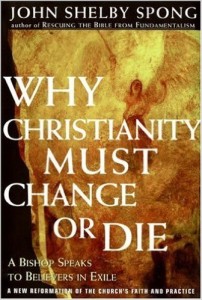 Around the time that I graduated dental school in 1998 at the age of 26, my parents gave me one of the books that acted as a powerful catalyst in questioning my faith: Why Christianity Must Change or Die, by (ret.) Episcopalian Bishop John Shelby Spong. (see the link in the Bibliography) Quite frankly, it was the most terrifying book I’d ever read, because it forced me to confront many of the doubts and questions that I’d had about Christianity head-on, and I realized that the answers usually given by Christians were totally inadequate to me.
Around the time that I graduated dental school in 1998 at the age of 26, my parents gave me one of the books that acted as a powerful catalyst in questioning my faith: Why Christianity Must Change or Die, by (ret.) Episcopalian Bishop John Shelby Spong. (see the link in the Bibliography) Quite frankly, it was the most terrifying book I’d ever read, because it forced me to confront many of the doubts and questions that I’d had about Christianity head-on, and I realized that the answers usually given by Christians were totally inadequate to me.
But my doubts started long before that; I’d just kind of ignored them or prayed and hoped for understanding and wisdom. Once I started learning about evolution, for example, I quickly realized that meant that there was never a real Adam & Eve, nor was there a real Garden of Eden, and if those never happened, then what was the “Fall” anyway? Later in college & dental school, as I thought and prayed about that more, I realized that if there was never a Fall, then the whole idea of Original Sin was nonsense, and if sin had nothing to do with falling away from God, but was simply a matter of human beings being imperfect because of evolution, then really, there was no purpose to Salvation at all!
Even that realization wasn’t enough to shake me loose completely, though, probably because letting go of God and faith was too painful at that time in my life. I already had a lot on my plate by the time I was reading this – graduating dental school, moving to Charlotte where I had no friends or connections, the stress of starting a practice, etc.
Phase 2A: Science Explains Reality Better than Religion
Nevertheless, what hit me full-force as I read Spong’s book was this: the simple realization that the Bible simply makes no sense in the modern world. It was written thousands of years ago, exclusively by men, who were utterly ignorant of the world in which they lived and how the Universe works, with no knowledge or understanding of genetics, gender, evolution, neuroscience, astronomy, disease, psychology, weather, geology…..of ANYTHING! Since I had just graduated dental school, which for 2 years is basically the same as medical school, after finishing undergrad with a Bachelor of Arts in Biology and only 2 courses shy of a minor in Chemistry, I believed that science is the most accurate way of understanding our world and universe. Especially in medicine! Because, you know, there are no treatments in the Bible for any actual diseases that we still use today, and Christianity as a whole has almost never been on the leading edge of science. Kind of like this:
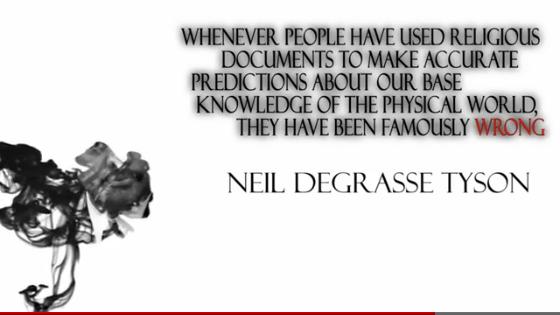
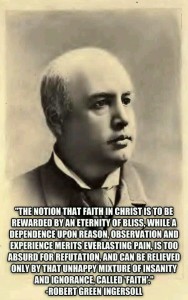
Once I started seriously questioning the basis of Christianity, the Bible, then everything truly was up for examination. When I really dove into an examination of the Bible textually and historically and was willing to question the actual morality of what is taught in it, I found it full of contradictions and actions of a God in whom I wouldn’t even WANT to believe.
For an interesting visualization and reference on many of the internal contradictions in the Bible, this link is fascinating: The BibViz Project. While the internal problems of the Bible weren’t the only stumbling blocks for me, they were certainly big ones.
For those people who make the claim that faith should trump reason and logic, or that we should believe things that evidence proves are false (such as the idea that prayer works – empirical evidence proves it’s no more effective, or even less effective, than placebo), I have a real problem with that. The idea that God would give us intelligence and reason and the ability to figure stuff out about the Universe that conflicts with the “Word of God” and then expect us to ignore the results of our investigations is, as Ingersoll states, “…too absurd for refutation.” When I hear people say that dinosaurs were on Noah’s Ark, or that God made fossils to “fake us out,” it just makes me want to puke.
In the years following dental school, I once again took up my love of reading and became fascinated by cosmology, or the study of how our Universe works, and neuroscience/psychology. During that extensive reading, I came to understand how amazing and limited the human mind is, and in coming to such understanding, I learned why the scientific method is so important for evaluating evidence. I learned why the human mind is not to be trusted by itself; why experience is completely subjective, and why beliefs change over time. I learned about Newtonian physics, General and Special Relativity, and even some Quantum Mechanics; not the actual equations, but the concepts and the evidence supporting them. Through this, I understood that the Universe is not just what we see; in fact, what we see of the Universe is a tiny fraction of reality! Therefore, because I am by nature a deeply introspective person, I continued examining my own biases, beliefs, and rationale for what I believed…..and I found those beliefs unsupported and wanting. Thus, those beliefs had to be discarded and new ones formed/accepted.
Phase 2B: Martial Arts and Buddhism
At the beginning of dental school in 1994, I began training in TaeKwonDo, and thus began my first exposure to Buddhism and Eastern philosophies. It wasn’t really until I was training for the 1st Dan (black belt) test near the end of dental school that I learned a lot more. Part of our test was to read 8 books, most of which were assigned by our Master, and write a report on them. I really wish I still had that report, as it was the longest thing I’d ever written at that point in my life – 40 pages! It might be buried in our attic somewhere. It was my first exposure to the writings of Thich Nhat Hanh, in particular, and his writings on peace, meditation, and mindfulness really resonated deeply with me, and I found myself wondering, “This is wonderful, why isn’t Christianity more like this!?” When you start wondering why the faith you’ve always followed isn’t nearly as profound as another, you know the doubts are getting strong. Indeed, my exposure to Buddhism and its profoundly peaceful message stood in stark contrast to the divisiveness, condemnation, and judgementalism that I regularly saw in Christianity.
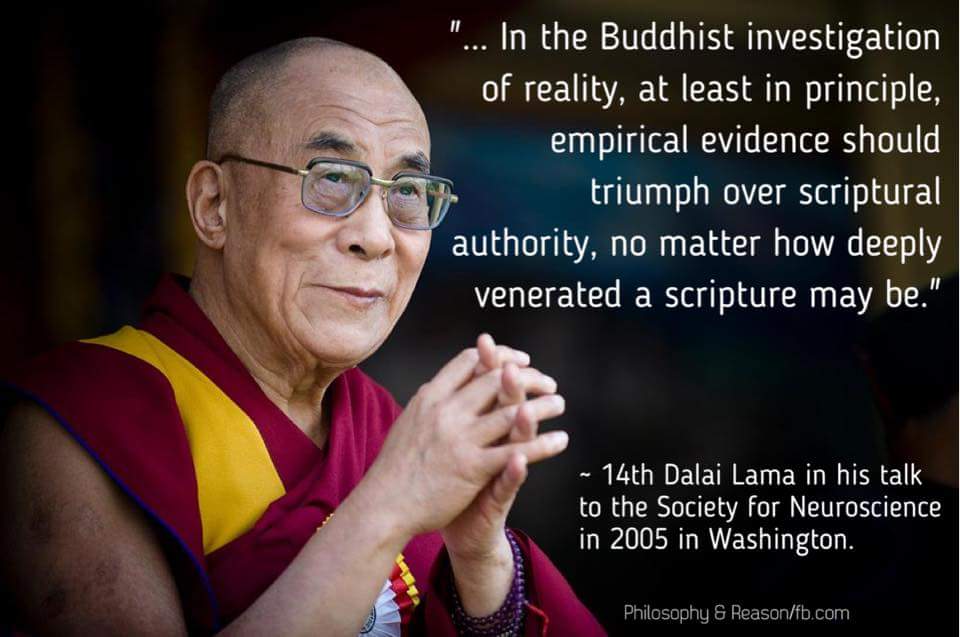
Not only that, Buddhism and other Eastern philosophies really have no inherent bias against science or reason. And I liked that!
Phase 2C: Christianity as a Force for Good or Not?
Another area that challenged my faith was the role of Christianity through history. One need only look at the 300 years or so of American history (including the settlement times by the Europeans) to see that Christianity has rarely been a driving force (in the majority) for uplifting the downtrodden and protecting the helpless, but has been a horribly repressive force. Going back further than that, the list of historical arenas in which Christianity stood on the WRONG side of history is extensive:
- The Crusades
- The Spanish Inquisition
- Persecution of Witches & the subjugation of women
- Homophobia
- The Slaughter and Treatment of Native Americans
- Slavery
- The Suppression of Science
While I could easily write a whole article on each of these, since many books and articles have already been written on them, I will simply encourage the reader who doubts to read deeply on any one or more of them. But it should be obvious that Christianity, as a whole, was wrong on every one of those subjects.
Let me be clear, however: it is equally true that individual Christians, and groups of Christians, often were involved in helping to overturn all of those wrongs. But they always started as the extreme minority, and the greater body of Christians fought long and hard to maintain the status quo, usually using the Bible and God as their justification in oppressing others.
So the question had to be faced – if Jesus really came to save, why did his followers through the centuries do such a god-awful job of following? Was that really the best that God could do?
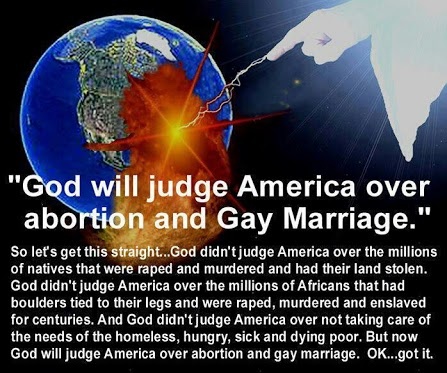
Not only that, when faced with claims that God has done great things through history, and particularly when faced with claims from the Religious Right that “God is going to punish America for gay marriage,” one really should look at the totality of history, not just cherry-pick the parts you like that support your beliefs. You know, ’cause God sure doesn’t seem to have cared much about all the Native Americans who died at the hands of Christians through disease, displacement, and war. Or to have done much about slavery, or child labor, or the oppression of women, among other things. But suddenly God is going to intervene because of gay marriage? Riiiiiiight.
Phase 2D: What Kind of God is God, Anyway?
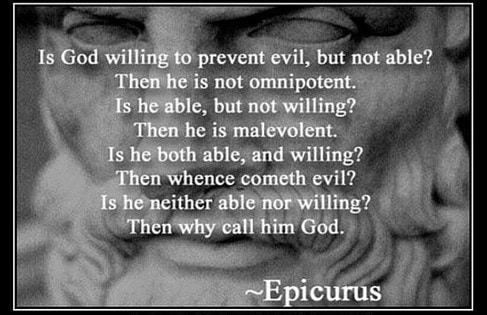
While this argument was first written by Epicurus in 33 A.D., and I’d been aware of it for quite some time, I generally tried to ignore it, because I had no idea how to argue it. Eventually, I was forced to confront it, and yes, I think Epicurus hit the nail on the head.
Interestingly, part of what prompted me to finally write this was some discussions centered around the concept of Free Will, which began with a post on Google+ by a guy I follow named John Newman. Bear in mind, this was not about “free will” as usually discussed by Christians, but the idea of whether or not the Universe is deterministic, non-deterministic, or compatibilistic based on the laws of quantum mechanics (as far as they are understood and calculable today.) During this discussion on Facebook, however, the topic took the somewhat natural turn into the question of “free will” as allowed by God due to the Fall in the Garden of Eden. And when discussing that “free will,” the concept was again raised that God has to allow all these horrible things in life to happen so humans can have free will. To which I say, “Bullshit.”
Once again, we run up against one of those ideas that absolutely never made sense to me as a Christian: the idea that, in order to allow humans to freely choose to worship God or not, God also had to allow tragedies, genocide, disease, and suffering beyond the capacity of most of us to even imagine, much less endure. And that speaks to the nature of this supposed God, just as Epicurus wrote more than 2,000 years ago, even before the birth of Christ. Because even as a limited human being, I can easily imagine a number of other possible scenarios that doesn’t involve all of that.
Phase 3: Admitting I’m an Atheist
The first time that I openly admitted my atheism, at least that I recall, was in March 2004 in Sorrentino, Italy. My Dad and I were on a 10-day trip there to see Italy and take a gazillion photos, and we were sitting at dinner, sipping some limoncello. Odd how we remember details like that, isn’t it? My Dad and I are very much alike and have always been able to talk about difficult topics, but even then, it wasn’t easy. Fortunately, my parents are accepting of my journey, so it hasn’t been an issue. Most of my family is Christian, however, so I don’t normally talk about it much. By now, I think most of them know, but this article may be a surprise to some.
Phase 3A: Mysticism
However, it wasn’t a clean break from religion entirely at first. Maybe some people can go cold turkey on religion, but I couldn’t. I honestly think it was mostly a need for emotional security at some level, but I evolved, so-to-speak, into a bit a of a mystic. By that I mean that I didn’t believe in “God,” but I still believed in the “Infinite,” the “Ground of Being,” or the “Source.” I gravitated to writers such as Wayne Dyer and Ekhart Tolle. That phase started around late 2006 – early 2007 and lasted quite a few years. Looking back, I’m surprised to see that I wrote this article My Faith – For Now less than 3 years ago. Honestly, I need to convert that Page to a Blog Post and get it off the main Navigation of the site! LOL I vaguely remember some of the journaling that I was doing in 2008-2011, and I’d probably laugh at myself if I went and dug those journals out of the attic (yes, I have done a lot of journaling ever since late high school, and I still have almost every single one.)
In retrospect, I find that phase of life in my mid-30’s to early 40’s a very interesting one. My wife and I met in early 2005 when I was 33, we married and had our daughter in 2006, and along with my (step)daughter Natalie (I only use the “step” for clarification; usually, I think and talk of her as if she is my own daughter, and that’s how much I love her), the next few years were very difficult ones due to the horrible mess that I’d made of my dental practice. It was largely thanks to my wife’s financial know-how that we ever got out of that, along with 2 other changes:
- I was diagnosed at age 33 with ADD and started medication, and
- I became passionately interested in the genre of self-help books called “Success Literature.”
In the Success Literature, there is a lot of talk about how the Law of Attraction, the Law of Deliberate Creation, and the Law of Allowing……although each author has his/her own “shtick” to make it distinct from the others. These “laws” are supposedly universal and involve aligning ourselves with the creative “force” of the Universe, and they involve a lot of “mental reprogramming.” While it all sounds very hocus-pocus and New Agey (it is), those books helped me tremendously in identifying and overcoming a lot of subconscious beliefs that were sabotaging my efforts and leading me to make really bad decisions. Because those books and those lessons did help me, I tended to believe in some of the hokey New Agey stuff, too. Not completely…..but the parts that helped me make important changes for sure.
Phase 3B: I’m a Taoist Buddhist Atheist
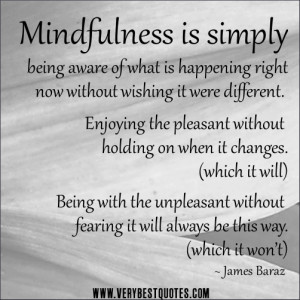 Based on everything you’ve read so far, it would be easy for you to mistake me purely as an intellectual, although that label certainly applies. Yes, I believe firmly in Skepticism, the Scientific Method, Critical Thinking. I try hard to avoid logical fallacies in my thinking and behavior. I love watching the advancement of science and the amazing things that people are doing. But at heart, I am a deeply emotional and intuitive person, and I find pure intellectualism to be dry, musty, and unfulfilling. I admit that I yearn for something deep and meaningful, and now I find solace in meditation and contemplating the Eastern mysteries. Not because I believe they offer some divine truth, but the very opposite – that they offer insight into the human condition, not by telling us how we should live like the 10 Commandments, but by inviting us to meditate on our existence and being. Not that I’m particularly good at meditating, but I’m working on it. 🙂 And mindfulness.
Based on everything you’ve read so far, it would be easy for you to mistake me purely as an intellectual, although that label certainly applies. Yes, I believe firmly in Skepticism, the Scientific Method, Critical Thinking. I try hard to avoid logical fallacies in my thinking and behavior. I love watching the advancement of science and the amazing things that people are doing. But at heart, I am a deeply emotional and intuitive person, and I find pure intellectualism to be dry, musty, and unfulfilling. I admit that I yearn for something deep and meaningful, and now I find solace in meditation and contemplating the Eastern mysteries. Not because I believe they offer some divine truth, but the very opposite – that they offer insight into the human condition, not by telling us how we should live like the 10 Commandments, but by inviting us to meditate on our existence and being. Not that I’m particularly good at meditating, but I’m working on it. 🙂 And mindfulness.
Personally, I am glad to find that neuroscience has a growing body of research that supports meditation as a means of improving the human mind in many ways. Such research is still in its infancy, relatively speaking, but fMRI (functional magnetic resonance imaging) and PET scans are clearly demonstrating physiological benefits for people within short periods of time (8-12 weeks). It greatly reassures me that science is demonstrating why it works and that it’s real, not imagined.
Now: I’m a SKEPTICAL Buddhist Taoist Atheist
At this point in my life, I’m comfortable saying that I am an atheist. On the Dawkins Scale, I stand at about 6. Because of the limitations of the human mind, I do not believe it is possible to ever state with 100% certainty that there is NO God of any kind. Nor do I believe that science will ever be able to definitively prove it, as the whole concept of a Deity is a priori beyond scientific proof. Therefore, I admit that there is a possibility that a Deity exists – I just don’t think it’s much of a possibility.
Summary
So there you have it. The “short” version of how I became an atheist after being a devout Christian for the first 30 years or so of my life. At times, it’s been a very scary journey, as I was forced to examine my beliefs and conclude that I could no longer believe them. When that happened, I had to decide what I DO believe, and that has continued to evolve.
In fact, there’s no guarantee that I will still be an atheist in another 5-10 years. Seriously – who knows? If there’s one thing I’ve learned along the way, it is that new evidence requires ongoing evaluation and understanding. Who I am and what I believe tomorrow will be at least partially built on who I am and what I believe today, but not only on that. For now, though, I don’t believe in god. Any god. And I am happier and more at peace than I ever was when I was a believer.
Bibliography
Just in case anyone wants to know, the following is a partial list of books that influenced me during this journey. These are in no particular order, but are listed as I thought of them or found them on my bookshelf or Kindle. It’s not a complete list. I found it illuminating in one particular way: you’ll note that almost none of them are actually about atheism. In other words – the more I studied Christianity, the less I could believe it. I became an atheist because Christianity no longer made sense.
- The Bible (read it cover-to-cover twice, plus LOTS of Bible studies over the years)
- Bertrand Russell: Religion and Science
- Karen Armstrong:
- John Shelby Spong:
- Bart Ehrman:
- Brian Greene:
- John Dominic Crossan:
- Paul Tillich: A History of Christian Thought
- Mihaly Csikszentmihalyi: Flow
- Thich Nhat Hanh:
- The Dalai Lama: The Art of Happiness in a Troubled World
- Eckhart Tolle:
- Sam Harris: Waking Up
- Dan Millman: The Way of the Peaceful Warrior
- Richard Bach:
- Benjamin Hoff: The Tao of Pooh
- Lee Strobel: The Case for Christ
- Gerald L. Schroeder: The Hidden Face of God
- Josh McDowell: Evidence that Demands a Verdict
- Anthony Damasio: Descartes’ Error
- Carl Sagan: The Demon-Haunted World – Science as a Candle in the Dark
- Robin Griffith-Jones: The Four Witnesses
- Richard Tarnas: Passion of the Western Mind
- Matthew Hutson: The 7 Laws of Magical Thinking
- David J. Hand: The Improbability Principle
- Daniel Kahneman: Thinking, Fast & Slow
- The Tao Te Ching